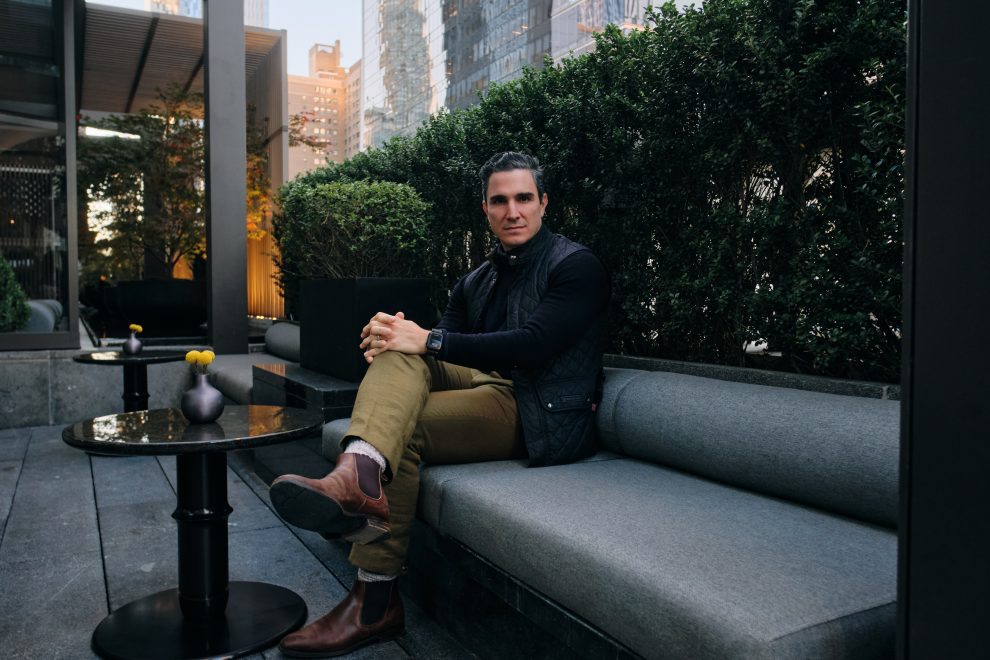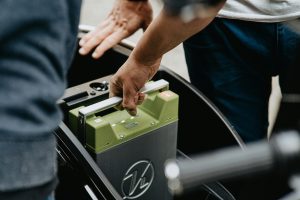Once a broker, always a broker? Not so for Stephen Palmese, who has taken the lessons learned at some of New York City’s top commercial real estate brokerages to inform his shift into financing at Integritas Capital, a vertically integrated investor and developer, as well as a direct lender.
Since 2004, Integritas Capital and its predecessor firm have been the direct developer of more than $1 billion in real estate transactions and lead investor in more than $2.5 billion in real estate projects across ground up development, direct investment and preferred equity investment, the acquiring of non-performing loans and the origination of whole loans and mezzanine financing. And it’s ramped up quickly, originating $800 million in loans in the past 18 months.
“Typically, building a business can take a decade,” said Palmese, Integritas founder and managing principal. “Buying and lending during a downturn, we knew we could build a company in a shorter time frame.”
Real estate development had always been his plan, even as a child wandering the city with his father looking at skyscrapers. The youngest of four children, Palmese grew up with real estate in his blood — some 90 years ago, his grandfather was a homebuilder who eventually transitioned his business to servicing multifamily and office buildings.
“In college, if you’d asked what I wanted to do, it was real estate development,” he said.
After graduating from Georgetown University in 2004 with a degree in international finance and business management, and having studied foreign exchange at Oxford University, Palmese found that opportunities in real estate development were scarce. Despite his strong academic background, he was also hesitant to join the family’s business.
An introduction from his now sister-in-law to Massey Knakal’s Jonathan Hageman brought him to commercial real estate brokerage, even as development continued to be his long-term plan.
“I met Jon and Bob Knakal with the idea of learning the business for a couple of years, and when I was ready to move into development, I’d do that,” Palmese said.
Circumstances, however, kept intervening.
“I started in August 2004. Then with the Great Financial Crisis of October 2008, when I was ready to move from brokerage into development, there were no jobs,” he said. “That was my inflection point. I should have taken a risk and started my own development company then.”
Meanwhile, Palmese, born in Brooklyn but raised in Staten Island, established Massey Knakal’s Brooklyn office — long before the borough became the “cool” place in the city. He quickly became an expert in the borough, facilitating transactions including the $345 million sale of 85-89 Jay St., the $340 million sale of 25-30 Columbia Heights and the $90 million sale of 9 Dekalb Ave.
His goal at that point was to build his visibility in brokerage prior to moving into development. Yet even as the market rebounded, Palmese remained with Massey Knakal, becoming a partner in 2012.
“Working at Massey Knakal was a such wonderful situation that you didn’t realize you were in a snow globe,” Palmese reminisced. “What kept me close to brokerage longer than I planned was the culture Bob and Paul created at Massey Knakal.”
But the idea of owning a portfolio of his own remained with him, and he founded Legacy Equity Holdings, a reboot of a long-inactive family business, to begin purchasing multifamily buildings, carefully avoiding conflicts of interest by acquiring through other brokers.
“The market was still dislocated, and I received a call from Marcus & Millichap asking if I’d buy an eight-family on Atlantic Avenue,” he said. “”I knew I was the broker’s last call — because I’d told him to put me at the bottom of his list. And that’s exactly what he did — and we ended up buying it. That began the relationship and was where Legacy came from.”
He focused on acquiring small mid-cap buildings in Brooklyn and Queens, building a portfolio of 20 buildings over five years that Legacy would renovate and manage in then-unknown neighborhoods such as Crown Heights and Boerum Hill, Brooklyn until rent laws changed. Legacy stopped acquiring in 2018.
Other changes were taking place in his professional life at the same time. Massey Knakal was acquired by Cushman & Wakefield in 2015, and Palmese followed most of the team to the new firm, then again to JLL when Bob Knakal moved over there. (Knakal and JLL parted ways in 2024 and he has since founded BK Real Estate Advisors.)
“Stephen has always been a tireless worker who really understood the business from his first days. He was a great partner, always gave it his best effort, was extraordinarily likable and achieved great results for his clients and for our company,” said Knakal. “It is not surprising at all that he is as successful in his new career as he was as a top producer in the brokerage business. I am so proud of his tremendous success.”
But working at publicly traded companies just wasn’t the same. The 2020 onset of the COVID-19 pandemic, which disrupted the local real estate market in so many ways, also pushed Palmese to rethink his own path, looking to pivot from multifamily into a new business line.
“During the summer of COVID, I realized that a Brooklyn brownstone that sold for $2 million in the Great Financial Crisis in 2010 or 2011 would now go for five times that,” he said. “I looked in the mirror and said ‘I’m not going to miss another opportunity to capitalize on that.’”
With partner Heights Advisors, an experienced developer and contractor and mentor from his earliest days in the business, he bought some strategic assets outside of New York in summer 2020 and 2021 and built momentum harvesting those projects as well as land with easements, lawsuits and environmental risks. After creating that portfolio, Legacy added lending, including direct loans. In 2023, he rolled all of that into Integritas, a direct investor, developer and lender. Legacy continues to own the multifamily buildings he acquired a decade ago.
“Where I am today is the culmination of the efforts that took place back then, inclusive of lending and direct investment and developing,” he said.
Today, Integritas — a key concept in the Spartan military meaning completeness, wholeness or soundness — provides loans of $25 million to $300 million, including bridge loans, construction loans or acquisition loans. Terms are slightly higher, but Integritas’ small size (just four staff, including Palmese) allows for quick decision making — he and Managing Director Michael Ottomanelli consult with partner Heights.
On the acquisition side, the firm focuses on properties that are in periods of dislocation, he said, such as the deeply distressed projects it acquired in 2020 and 2021, as well as projects it acquired in Florida in 2018, where the upside at the time was greater than in New York.
“We’re not common equity — we’re not giving cash to another developer,” he explained. “We’re only buying to develop ourselves if it’s compelling. The strategies are complementary.”
That philosophy dates back to Palmese’s Massey Knakal days, when he was encouraged to not just be expert in the city, but to individual streets — and the projects on them.
“Fort Lauderdale was where the opportunities were,” he said. “Now, today, the opportunities are elsewhere.”
His background in commercial brokerage comes in handy.
“We take a bit of a different approach at Integritas,” Palmese observed. “When we issue a construction loan, we want to meet the subs and learn their pricing and sourcing. We comment on the plans, floor by floor.”
And all those years working with all of those owners means a hefty network.
“Going back to the Massey Knakal days, I can get to pretty much anyone in New York City with one, or maybe two, phone calls,” he said. “It’s also helped with authenticity. These people know I follow through with what I say. You make friends over time, and I certainly know how to work with brokers.”
Integritas has raised private capital on the lending side and is now in the position to grow its institutional business. Over the last 15 months, it’s loaned $800 million, with an average loan size of $80 million. Future opportunity is huge.
“In 2024, it ended up being a special point in time,” he said. “Many of the debt funds were tending to legacy books with loans from 2021(and prior). Those loans were very low interest rate, and they had to adjust to the changes in value. They weren’t actively originating new loans. We came into the market with $100 million in cash. I was getting phone calls from debt funds asking if we were able to participate in their loans. And so, we put out a lot of money, partnering with companies who invited to participate as well as originating our own loans.”
Recent transactions include a $125 million construction loan to convert a Brooklyn office building at 175 Pearl St. into residential; an $18 million construction bridge loan to advance predevelopment in Queens, a $96 million loan to develop a condominium in Fort Lauderdale, a $53 million refinancing of a Red Hook, Brooklyn site that will house an industrial development, and a $155 million bridge loan to convert a 50-story, 466-unit Miami multifamily into the Miami Flow House condos.
Integritas also is proposing a 57-story tower with apartments and a hotel in Fort Lauderdale.
After spending time supporting multiple charities over the years, Palmese has chosen more recently to focus his energies on two organizations — Laugh it Out, an organization that brings improv comedy to inner city schools, and World Without Exploitation, a coalition that is dedicated to eliminating human trafficking.
“With Laugh It Out, you see these adolescents — the so-called bully, the jock, the nerd, all of these social categories — on stage, and that’s the equalizer,” he said. “Improv unifies everybody, and studies show that these kids are less likely to be susceptible to gang violence and have higher graduation rates.”
Integritas is also raising its first fund, with investors likely coming from high-net-worth families. The number of distressed projects is likely to increase as loans originated in a much lower interest rate environment come due. And that diverse experience will continue to benefit the company.
“I’ve bought multifamily and renovated multifamily,” said Palmese.“I have yet to build anything from the ground up, but my partner, Heights, has this experience. Now, as we’re doing large-scale loans, between lending and investing, this is how we’ll be able to scale.”























